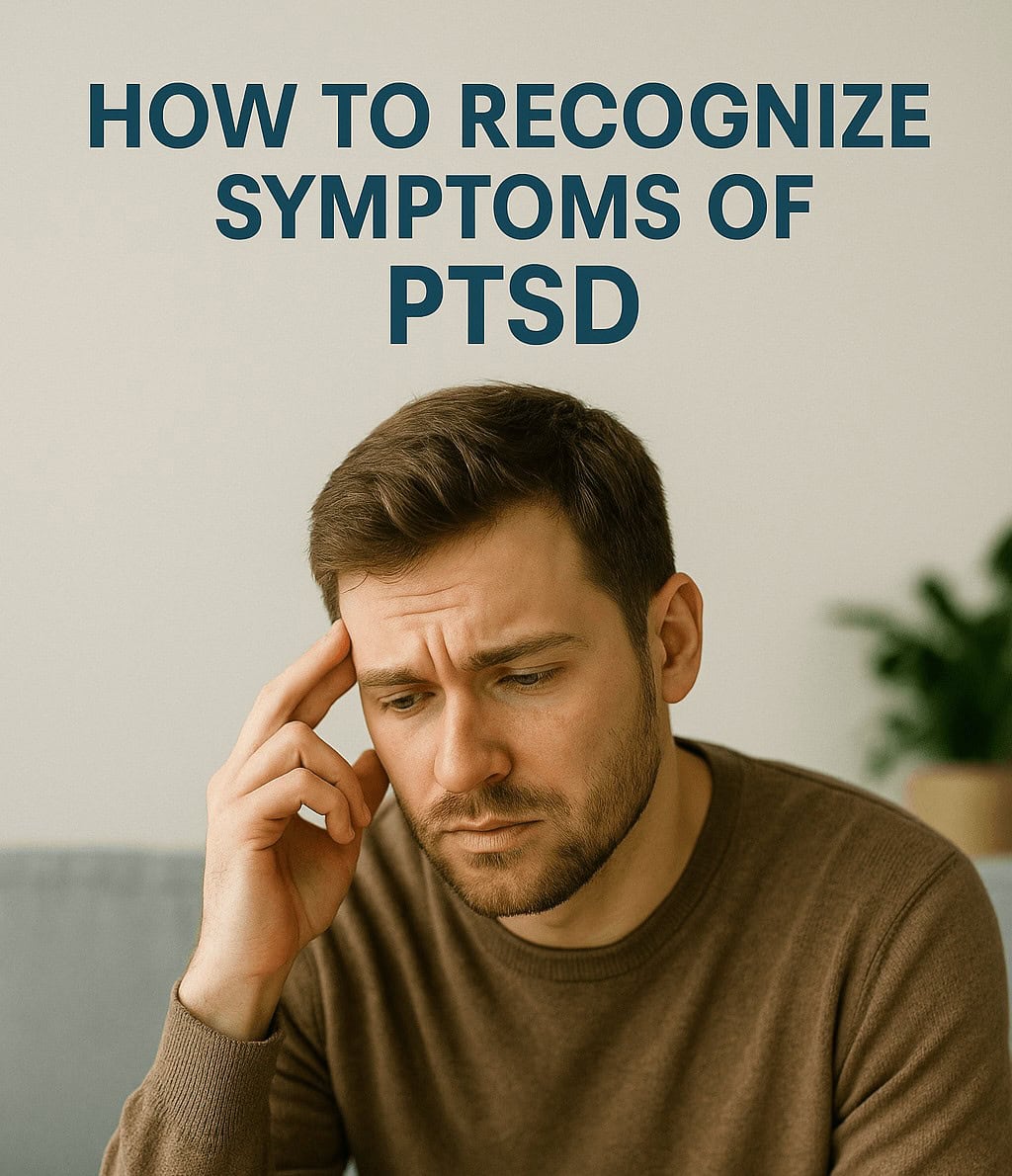
How to Recognize Symptoms of PTSD
Post-traumatic stress disorder (PTSD) can affect anyone. It doesn’t only impact veterans or people in combat zones. Many individuals develop symptoms of PTSD after experiencing trauma, such as abuse, accidents, assault, or loss. Recognizing symptoms of PTSD early can help individuals seek treatment and start healing. At Greene Psychology Group, we provide compassionate support for those living with trauma in Raleigh and through teletherapy.
What Is PTSD?
PTSD is a mental health condition triggered by a terrifying or deeply distressing event. While it's normal to feel shaken after trauma, PTSD causes ongoing symptoms that interfere with everyday life. These symptoms can persist for months or even years if untreated.
Trauma changes how the brain processes fear, memory, and emotional regulation. PTSD is the brain’s attempt to protect you, but those survival instincts can become overwhelming when they remain activated long after the danger has passed.
Common Causes of PTSD
PTSD can result from any event that feels threatening to your safety or emotional well-being. Common causes include:
- Physical or emotional abuse
- Serious car accidents
- Sexual assault
- Military combat
- Natural disasters
- Sudden loss of a loved one
- Prolonged exposure to violence
Not everyone who experiences trauma develops PTSD. However, certain risk factors, including prior trauma, lack of support, and underlying anxiety, can increase vulnerability.
Four Main Categories of PTSD Symptoms
Mental health professionals group PTSD symptoms into four main categories. Most individuals experience a mix of these symptoms, which can range in intensity over time.
1. Re-experiencing Symptoms
These symptoms make it feel like you're reliving the trauma over and over. They include:
- Flashbacks or intrusive memories
- Nightmares or distressing dreams
- Emotional or physical reactions to reminders of the trauma
Triggers can be obvious (a loud noise, location, or smell), or they can be subtle. Re-experiencing symptoms are often the most distressing and can disrupt sleep, concentration, and daily life.
2. Avoidance Symptoms
Many people with PTSD go out of their way to avoid reminders of the trauma. This includes:
- Avoiding people, places, or situations that bring back memories
- Refusing to talk about the event
- Disconnecting from activities or people they once enjoyed
Avoidance may offer short-term relief, but over time it isolates individuals and delays healing.
3. Negative Changes in Thinking and Mood
PTSD can alter how you view yourself, others, and the world. Symptoms in this category include:
- Persistent negative thoughts or beliefs (e.g., “I can’t trust anyone”)
- Feelings of guilt, shame, or hopelessness
- Difficulty remembering parts of the trauma
- Detachment from others or emotional numbness
These changes often affect relationships, work, and self-esteem.
4. Hyperarousal or Reactivity Symptoms
PTSD keeps the body on high alert. Symptoms include:
- Trouble sleeping
- Irritability or angry outbursts
- Feeling jumpy or easily startled
- Difficulty concentrating
These symptoms are sometimes misdiagnosed as anxiety or ADHD. Understanding their connection to trauma helps target treatment more effectively.
When to Seek Help
It’s important to seek help if PTSD symptoms:
- Persist for longer than one month
- Cause significant distress or interfere with daily functioning
- Lead to self-isolation or substance use
- Affect relationships, work, or physical health
PTSD won’t go away on its own. However, it is treatable. Therapy can help individuals reprocess the trauma and reclaim a sense of control.
Treatment Options for PTSD
Cognitive Behavioral Therapy (CBT)
CBT helps individuals reframe unhelpful thought patterns. For PTSD, it may include exposure therapy and cognitive restructuring to reduce fear and build resilience.
EMDR (Eye Movement Desensitization and Reprocessing)
EMDR is a structured therapy that helps people reprocess trauma using guided eye movements. It's especially effective for individuals with persistent flashbacks or severe trauma memories.
Mindfulness-Based Therapies
Mindfulness practices reduce hyperarousal symptoms by helping individuals stay grounded in the present moment. This is often combined with other approaches.
Medication
Some individuals benefit from medication to manage anxiety, depression, or sleep disturbances related to PTSD. This can be part of a broader treatment plan.
At Greene Psychology Group, we help clients explore options that align with their symptoms and preferences. We understand that each person’s trauma history is unique.
Frequently Asked Questions (FAQs)
Q1: Can PTSD develop years after the trauma?
Yes. Symptoms can appear long after the traumatic event, especially if new stressors or triggers arise.
Q2: Is PTSD the same as anxiety?
No. PTSD includes anxiety symptoms, but it’s a distinct condition linked to specific traumatic experiences.
Q3: How long does PTSD treatment take?
It varies. Some people improve in a few months. Others benefit from longer-term support.
Q4: Can PTSD be cured?
PTSD can be effectively treated. Many individuals recover fully or experience major symptom reduction with consistent therapy.
Q5: What if I don’t remember everything about the trauma?
That’s okay. You don’t need full memory recall to heal. Therapy focuses on your current symptoms and goals.
Supporting Resource Links
- National Center for PTSD – U.S. Department of Veterans Affairs
- American Psychological Association – PTSD
- National Institute of Mental Health – PTSD
- Greene Psychology Group – Trauma and PTSD Therapy
Final Thoughts
Recognizing symptoms of PTSD is the first step toward healing. Whether your trauma is recent or happened years ago, help is available. Therapy offers tools to reduce fear, restore confidence, and build a more balanced life.
Greene Psychology Group serves individuals in Raleigh and beyond through teletherapy. Our therapists offer supportive, personalized care grounded in evidence-based practices.
If you’re struggling with symptoms of PTSD, you don’t have to go through it alone. Contact us today to learn more or to schedule your first session.
